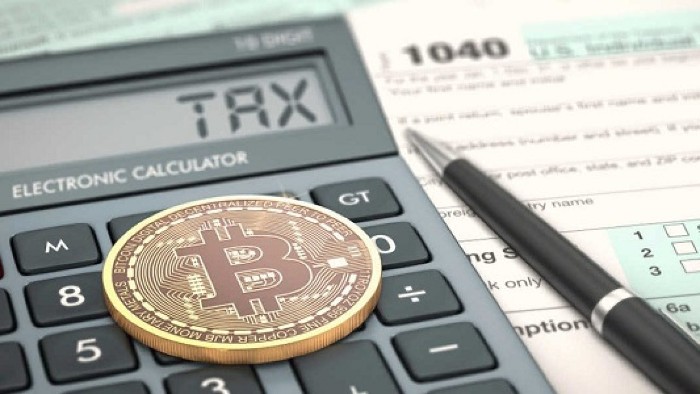The Central Economic Intelligence Bureau (CEIB), a part of the union finance ministry, suggested that Bitcoin can be considered “intangible assets” and put under that class. It has lo put forward a proposal to impose 18% GST on Bitcoin transactions.
The CEIB stated to the Central Board of Indirect Taxes & Customs (CBIC) that there is a potential to gain 7,200 crores annually on Bitcoin trading.

GST on cryptocurrency trading
Earlier in May 2018 also there were discussions over putting cryptocurrency trading under GST. Cryptocurrency can be treated as current assets, and GST charged on the margin made on its trading. The Supreme Court in India (SC) has asked the government to form cryptocurrency regulation policies last year. The SC had already ruled out the ban on Reserve Bank of India (RBI) as illegal trading in virtual currencies such as Bitcoin. This year March, the apex court has turned down the curb on cryptocurrency in India.
RBI Ban on cryptocurrency transactions
In 2018, RBI had directed all entities regulated by it not to accept the transactions made under the cryptocurrency. It had maintained that all the deals or the services provided through the cryptocurrencies would not be void and not to facilitate any person dealing or settling them through the virtual currency.
Waiting for regulation
Currently, the transactions under Bitcoin or any cryptocurrency are not authorized, and there are no regulations for the same in India. Bitcoin trading in India has become a personal risk because no laws come to rescue if a dispute arises, equivalent to Bitcoin transactions being unauthorized. There is no platform to resolve any issues. There are no set of rules, regulations, or guidelines to date.
Experts say on GST consideration
Varun Sethi, the blockchain lawyer, stated, “The GST had to happen. The implication of GST means the trading will become legitimate, but the government should clarify the nature of levying the GST. It should also clarify whether a cryptocurrency consideration as a digital asset, commodity, or security”. “Since all trades shouldn’t have 18% GST, ideally 18% should be only on service-based income. Does that indicate the Bitcoin ready for the exchange of services? For daily traders, it should be treated as commodity trading and attract capital gains.”
He also suggested the government to study the UK’s policy on cryptocurrency. He opined that without checking the legal position of crypto trade and randomly charging 18% GST would be highly debatable.
Policy 4.0 CEO Tanvi Ratna has different views. She said that levying 18% GST on Bitcoin trading does not mean it will be legal trading. She said, “Under Indian law, illegal income is also taxable, and not paying the tax is an illegal activity.
Meanwhile, the Indian crypto stakeholders made it clear that from 2014 they insist their crypto users declare their crypto is earning while filling the income tax returns. Vikram Rangala, ZebPay’s chief marketing officer, said that “ZebPay has told our members since 2014 that the tax laws always apply to crypto earnings. We advise our customers to declare their crypto income and be compliant.”
Sumit Gupta, CoFounder, and CEO of Mumbai-headquartered crypto exchange CoinDCX said crypto earnings could be declared “income from other sources” in ITR.
We need to understand what made CEIB put forward this proposal. There are some points in the request that will be put before the GST council to support the proposal.
- Cryptocurrency ‘mining’ to be treated as a supply of service because it generates cryptocurrency and includes rewards and transaction fees. Tax to be collected from miners on dividends and transaction fees. In case the reward value exceeds 20 lakh, individual miner will need to register under the Goods and Service Tax (GST)
- The ‘wallets’ storing keys to be taxable. Wallet service providers to be registered under GST.
- Cryptocurrency exchanges need to register and need to pay tax on their earning.
- Trading to be levied 18% GST.
- Selling and buying cryptocurrencies to be considered under the category of supply of goods. Other relevant facilitating transactions to be under services and would include transfer, supply, storage, and accounting.
- The value of the cryptocurrency is determined based on the transaction value in rupees or the equivalent of any convertible foreign currency.
- If both sellers and the buyer are within India, then a transaction must record a supply or sale of software and the bitcoin buyer’s location to be the place of supply.
- For transfer and sale, the location of the registered person to be the place of supply.
- For transactions conducted beyond the Indian Territory, the integrated GST is applicable and considered as import and export of goods. IGST to be levied on cross-border supplies.
Currency or asset
In many countries, cryptocurrency is neither legal nor illegal, but the ban implicates financial banks. In India, as per Foreign Exchange Management Act, 1999, the currency is currency notes, postal notes, postal orders, money orders, cheques, drafts, traveler’s cheques, letters of credit, bills of exchange & promissory notes, credit cards, and similar. Now the debate is whether crypto can be a currency or an asset? Many believe that the RBI should accept it as a digital currency.
Bitcoin – global Scenario
In the US, Bitcoin is forming as an asset like a ‘fixed asset’ The United Kingdom treats it as a ‘private currency.’ Bitcoin in Australia ranges from a traded asset to an investment. In Singapore, Bitcoin is a valid currency, while in Japan, Bitcoin treated as a commodity.
Bitcoin – indian Scenario
In India, RBI has prohibited the buying or selling of cryptocurrencies in INR through banks. Then too, India is among the top 5 countries in the world where it comes to share of cryptocurrency held, and it is 44 percent of the world; share.
Given the current status, it is clear to take a long time for Bitcoin acceptance as a currency in India, leading to potential tax losses as the eventual exchanges are likely to shift out of India. The situation is reversible if the government recognizes Bitcoin or other cryptocurrencies as a void in India.
The trading will have the government support through 18% GST levied on it. The currency treatment as current assets and charging GST on the margins that Bitcoin exchanges charge their users.


